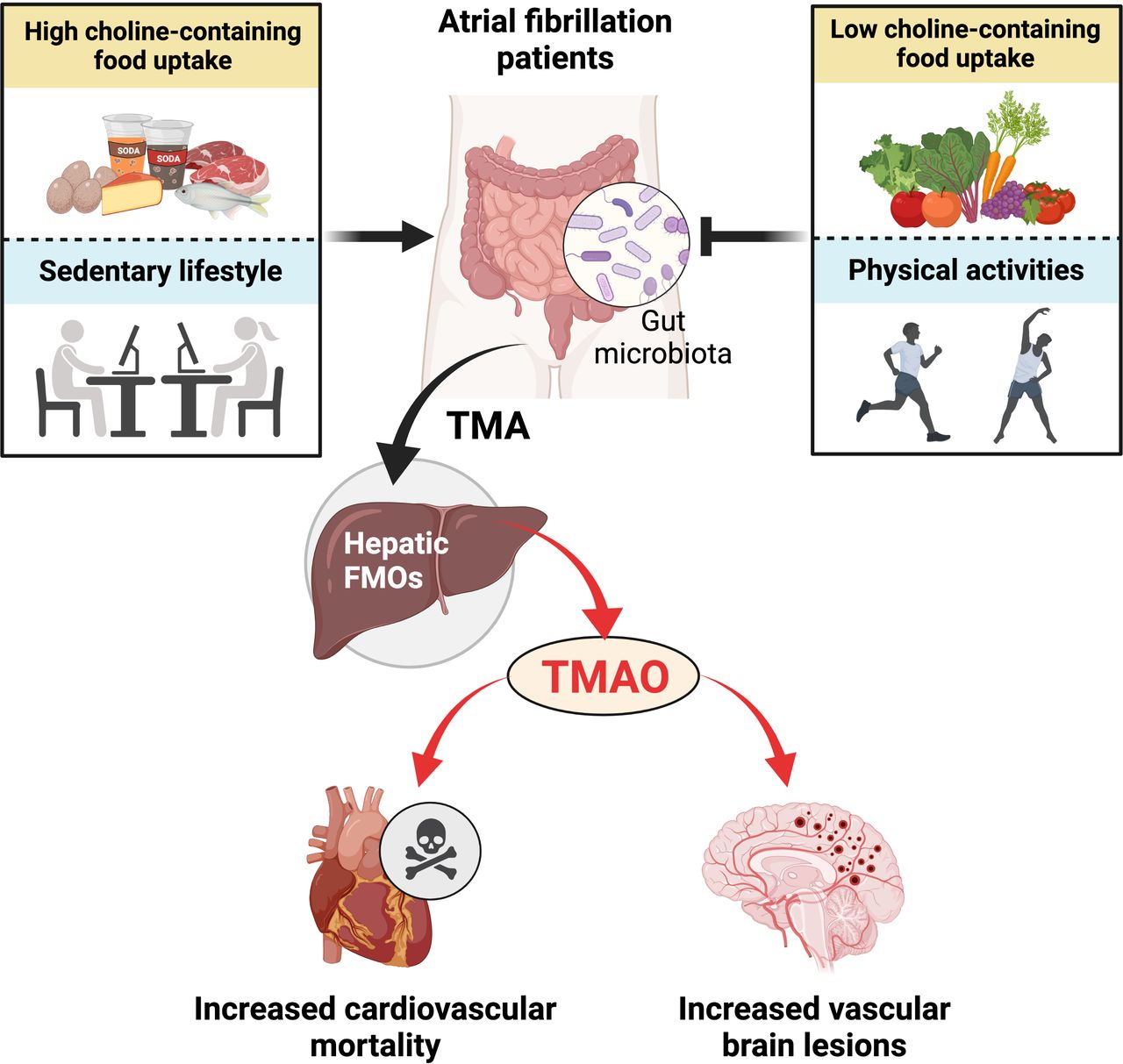Trimethylamine-N-oxide and cardiovascular risk in patients with atrial fibrillation

Patients with atrial fibrillation (AF) have shorter life expectancy and higher likelihood of suffering from cardiovascular and cerebrovascular events in comparison with the general population, and there is a high medical need for biomarkers to improve risk stratification. Trimethylamine-N-oxide (TMAO) is a microbiota bioproduct with prothrombotic and pro-oxidative properties associated with major adverse cardiovascular events, yet not fully tested in specific at-risk subpopulations such as patients with AF. In this original article, Luciani and et al. show that overall and cardiovascular mortality were significantly higher in subjects with high levels of TMAO, independently of classic cardiovascular risk factors. Importantly, TMAO was associated with more and larger strokes independently of other risk factors. These findings from the national Swiss Atrial Fibrillation study highlight the clinical relevance of TMAO in life expectancy and quality of life. Finally, lowering TMAO (eg, by a simple dietary modification) may decrease the risk of adverse cardiovascular and cerebrovascular events in patients with AF.